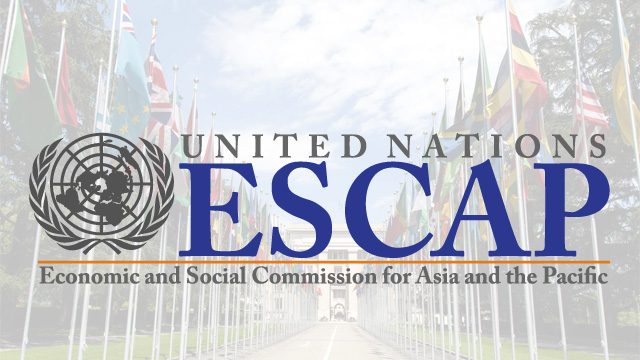SUMMARY
This is AI generated summarization, which may have errors. For context, always refer to the full article.

MANILA, Philippines – The Philippines will be “another strong performer” in 2015, the United Nations Economic and Social Commission for Asia and the Pacific (UNESCAP) said in its latest regional macroeconomic outlook report released Thursday, May 14.
UNESCAP forecasts the country’s economy to expand by 6.5% relative to 6.1% growth last year.
It also expects the economy to expand by 6.4% in 2016.
The agency’s forecast is below the Philippine government’s growth target of 7% to 8% for this year and next.
Ramping up fiscal spending
Domestic consumption will remain the main driver of growth, aided further by the fall in global oil prices and continued good performance in the services sector, according to the Economic and Social Survey of Asia and the Pacific 2015, UNESCAP’s annual flagship publication.
The Philippine government is likely to expand fiscal spending in the run-up to elections in 2016, the report added.
“Congress passed a supplementary budget in December 2014, and the government is expected to accelerate spending ahead of the 6-month moratorium on project approvals prior to the national election in May 2016,” it added.
UNESCAP said that the services sector will continue to drive growth. In particular, the business process outsourcing (BPO) sector is expected to generate some $25 billion in revenues by 2016, accounting for a tenth of the economy.
Remittances from some 11 million overseas workers will also continue to contribute to growth, it added.
But the report said it is important to keep expanding the traditionally weak manufacturing base through regulatory reforms as well as increased public investment.
Structural weaknesses
Growth in the region’s developing nations is expected to increase slightly to 5.9% in 2015 from 5.8% last year, with no significant change expected in 2016.
UNESCAP also said that while developing economies in the Asia-Pacific region continue to fare well in comparison to the rest of the world, structural weaknesses constrain growth prospects.
The report said that the growth potential of Asia-Pacific developing economies is held back by infrastructure shortages and the excessive commodity dependence of some countries.
The fragile global economic recovery, and consequently subdued global trade, pose additional challenges.
United Nations Under-Secretary-General and ESCAP Executive Secretary Shamshad Akhtar emphasized the need to promote quality growth and shared prosperity in the region.
She called on regional policymakers to integrate and mainstream inclusive growth by adopting a mixed set of measures to achieve better social and environmental outcomes, to enhance public welfare. (READ: Inclusive growth: Vital for Asia-Pacific sustainable development)
“While traditional sources of finance such as tax revenues and official development assistance are important, in order to bridge the wide financing gap, efforts to deepen the region’s capital markets and engage the private sector must be intensified,” Akhtar said.
Akhtar also said that governments should not only increase their own revenues, but importantly to also better tap private sector resources for sustainable development – in particular for climate-friendly infrastructure and social financing. – Rappler.com
Add a comment
How does this make you feel?
There are no comments yet. Add your comment to start the conversation.